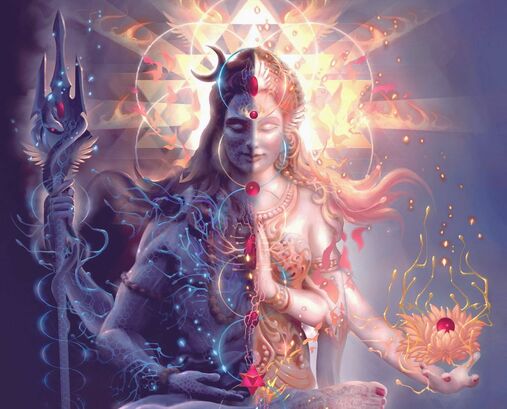Sutra 1.23: Īśvarapranidhānādvā ~ "Or [samādhi is attained] by devotion with total dedication to Īśvara." Sutra 1.24: Kleśa karma vipākāśayairaparamrstah Purusaviśesa Īśvara ~ "Īśvara is the supreme Purusa (self/soul) unaffected by any afflictions, actions, fruits of actions or by any inner impressions of desires." Sutra 1.25: Tatra niratiśayam sarvajñabījam ~ "In Īśvara is the complete manifestation of the seed of omniscience." *all translations by Sri Swami Satchidananda* **Sutras 1.26 - 1.29 below** In these Sutras, Patanjali talks about reaching samādhi through devotion and total dedication to Īśvara (God), which is the supreme Purusa (self/soul), and the complete manifestation of the seed of omniscience. In other words, Sri Swami Satchidanada says, “Īśvara is all-knowing and is knowledge itself.” I love this explanation, following the study of knowledge in the previous sutras (day 7). If Purusa (the supreme soul) is unaffected by afflictions, karma, or the fruits of actions, and the goal of yoga is also to become unaffected by these aspects of being human, it follows that if we are to reach self-realization, we must become one with Nature by walking this path. Sutra 1.26: Sa pūrvesaām api guruh kālenānavacchedāt ~ "Unconditioned by time, Īsvara is the teacher of even the most ancient teacher." Sutra 1.27: Tasya vācakah pranavah ~ "The word expressive of Īsvara is the mystic sound OM [OM is God's name as well as form.]" Sutra 1.28: Tajjapas tadartha bhāvanam ~ "To repeat it with reflection upon its meaning is an aid." Sutra 1.29: Tatah pratyak cetanādhigamo 'pyantarāyābha-vaś ca ~ "From this practice all the obstacles disappear and simultaneously dawns knowledge of the inner Self." I like the way Sri Swami Satchidananda translates Sutra 1.27 in particular, adding "OM is God's name as well as form". OM is the manifestation of God, and the seed from which all other sounds manifest. Whether or not you chant OM, Sri Swami Satchidanada says, "the basic sound is always vibrating in you." This is why we use it as mantra, a sort of invocation and celebration of the divinity within everything.
In Sutra 1.28, Patanjali introduces us to Japa Yoga, or the repetition of mantra to reach communion with the divine. Sri Swami Satchidananda adds that mantra can be translated as "that which keeps the mind steady and produces the proper effect". Something that sits really well with me in the Yoga Sutras is the openness to different approaches. Though he is precise and methodical, Patanjali is also accepting and inclusive in his instruction and advice. The Sutras recognize that there are different paths to the same Truth... I love that.
0 Comments
Your comment will be posted after it is approved.
Leave a Reply. |

